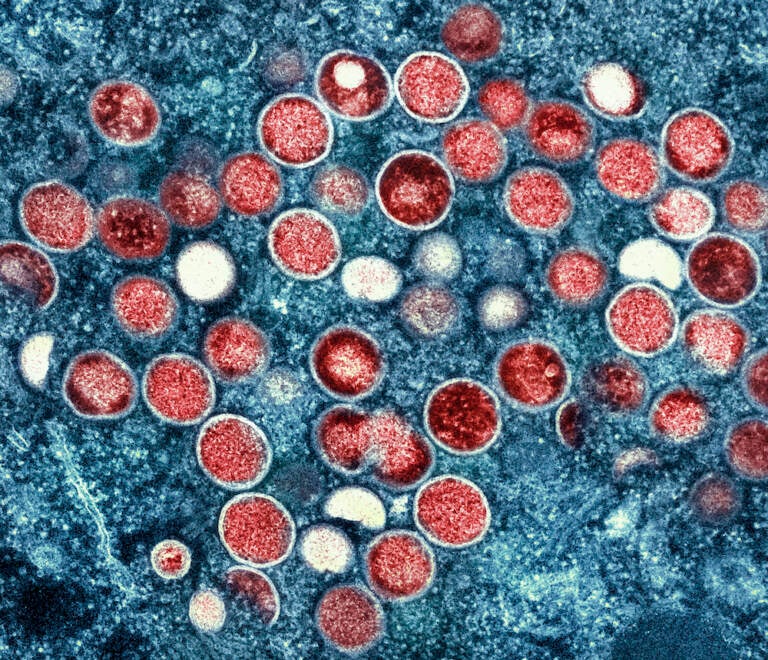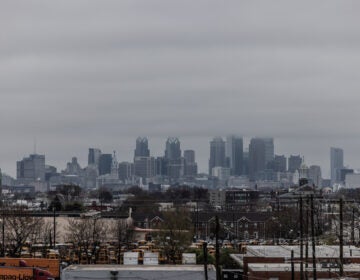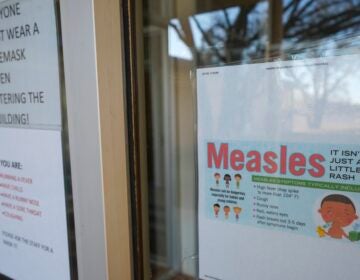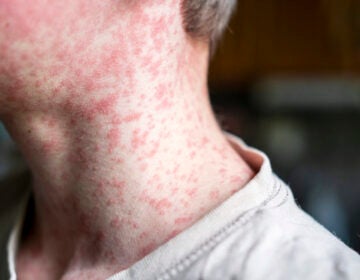The monkeypox outbreak and Covid surge
Monkeypox cases in the U.S. tripled in July. We'll discuss the public health response, if it's enough and talk about the surge in Covid infections.
Listen 49:15
This image provided by the National Institute of Allergy and Infectious Diseases (NIAID) shows a colorized transmission electron micrograph of monkeypox particles (red) found within an infected cell (blue), cultured in the laboratory that was captured and color-enhanced at the NIAID Integrated Research Facility (IRF) in Fort Detrick, Md. (NIAID via AP)
The World Health Organization has declared monkeypox a global public health emergency, with over 23,000 confirmed cases around the world. In the U.S., as infections tripled in the month of July, three governors have declared states of emergency and President Biden just appointed a monkeypox outbreak coordinator. But, as some public health experts have charged, is all of this coming a little too late?
This hour, we discuss the lessons we should have learned from the Covid-19 pandemic and our response to the monkeypox outbreak. We’ll also talk about the virus, the risk it poses and concerns about stigma in the LGBTQ community. And, we’ll talk about the latest on Covid as the Omicron subvariant BA.5, the most transmissible variant yet, continues to push infection rates up.
Guests
Dr. Perry Halkitis, Dean of Rutgers University School of Public Health. He’s a public health psychologist, infectious disease epidemiologist, applied statistician, and advocate and the author of Out in Time: The Public Lives of Gay Men from Stonewall to the Queer Generation. @DeanPNHalkitis
Dr. Jay Varma, Professor of population health sciences and the Director of the Cornell Center for Pandemic Prevention and Response at Weill Cornell Medicine. He spent 20 years working for the CDC on infectious diseases in Africa, Asia, and New York City, most recently leading the City’s COVID-19 response from April 2020-May 2021. @DrJayVarma
WHYY is your source for fact-based, in-depth journalism and information. As a nonprofit organization, we rely on financial support from readers like you. Please give today.





